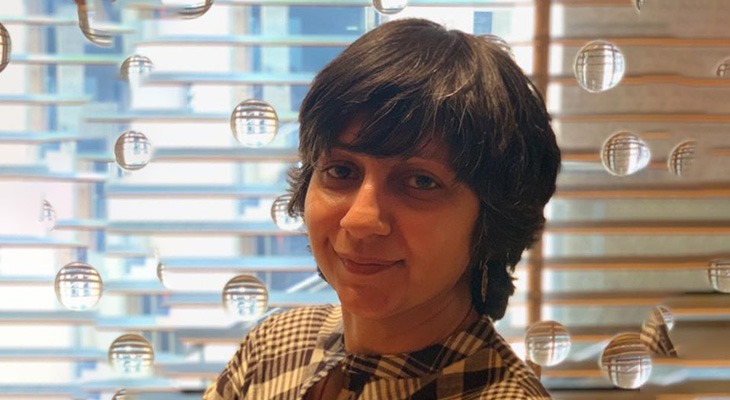
If I had to recommend a book to someone, I would suggest any of the Calvin & Hobbes series and the line from the last strip that Bill Waterson wrote has more or less defined the way I approach life in general, “It’s a magical world, Hobbes ol’ buddy, let’s go exploring”.
Thankfully, this mantra is one that was easily imbibed in my professional life as well. My career has been dotted with experience across diverse spaces including the media and telecom industries, that helped me create a bank of valuable insights that I was fortunate enough to gather, before I turned into an entrepreneur. During my early years in the corporate life, I worked on a lot of interesting and challenging projects many of which were focused on financial inclusion.
In the next chapter of my professional life when I turned into an Entrepreneur as the co-founder of Eatelish, a passion project which turned into a business and one that also allowed me to dip my feet into yet another industry. While the last few years were spent on building Eatelish into what became a highly appreciated and well-loved brand in the food space, however, deep down I always felt that I have some unfinished business in the financial space.
Finding my way back to Fintech
Sometime last year an opportunity arose to work on an Incubator focused on the fintech space in India. A golden chance to bridge the gap between Mentors, Investors and Startups and an area that has been close to my heart, considering it was also where I started my early career, was what tempted me to dive back into this space.
Apart from the passion, I think the time is as right as can be to be a part of the rapidly evolving fintech landscape and participate in scripting a part of the story too along the way, hopefully. There’s a wide chasm of untapped potential waiting to be unlocked as India moves towards a cashless/digital economy. In 2017, India became the second fastest growing country in the world to adopt Fintech technologies according to the EY Fintech Adoption Index. The Fintech industry in India is expected to see 100% growth from 2017, in a four-year period, predicted to increase from $1.2 billion in 2016 to $2.4 billion by 2020. Constantly evolving digital technologies such as Artificial Intelligence, Machine Learning, rapid internet penetration at cheap rates and increasing smartphone users, matched by the government’s push – an almost single-minded resolve to make digital transaction the norm instead of dealing in cash are creating the right environment for a Fintech revolution. The intersection of mobile technology and financial services is bringing about the financial inclusion of nearly a billion unbanked people who are estimated to bring transactions into the global commerce ecosystem that could top $3 trillion by 2025. This is not something limited to just India but there is a worldwide push to go Cashless, Turkey aims go to cashless by 2023, Vietnam’s Fintech market hit $4.4 billion in 2017, and is expected to reach 7.8 billion by 2020, according to research from Solidiance, an APAC-focused consulting firm.
Opportunity to give back meaningfully
While these are great indicators every space comes with its set of challenges and the fintech is no exception. Worldwide the biggest challenge for Fintech players is navigating the Regulatory framework. This becomes even more complicated in India with the multitude of Regulatory authorities that companies have to deal with. While the RBI is one of the main authorities there are other regulatory bodies such as NPCI, TRAI that a fintech company needs to stay updated about, Insurance players in the fintech space would also need to work say with the IRDA. This coupled with factors such as security, rapidly changing policies and a legacy of established institutions are some of the challenging factors for players in this space. On the consumer front too, startups are still struggling to create products and services that find deep resonance on a mass scale and also retaining these customers.
Naturally, as with any industry that is rapidly evolving, any ecosystem led support can prove to be an elixir of life. It is this ability to help startups overcome challenges they face and create real measurable impact through their innovation, that I find most exciting in my latest innings. Being able to build out a safe space that startups in the fintech industry can rely on in order go from paper to product, and then to hit scale, is even more meaningful for me, as I can view their challenges from an emphatic lens, giving me the unique advantage to also provide insights to the mentor ecosystem and other stakeholders who are committed to better the fintech space in India.
Lastly, for me being an incubator in the fintech space also means, that I have the unique opportunity to seed ideas and nurture bright minds as they begin their professional journey. It also allows me to encourage women in the technology to have the confidence in their own potential to not only explore the innovation they are capable of, but also to become active participants in shaping India’s digital future in a very real way. An incubator is a life sustenance device, and for me there could be nothing more meaningful than to be able to give back that fresh lease of life to the community I have emerged from, by gathering a cohort of people whose insights and lessons have helped shape me into who I am today.
Tanul Mishra is the Founder and CEO of Afthonia Lab, a Bangalore based incubator focused solely on the fintech industry. Incepted in 2018, Afthonia Lab aims to be a one stop destination for fintech startups with an experienced body of mentors from diverse sectors in the US and India.

























